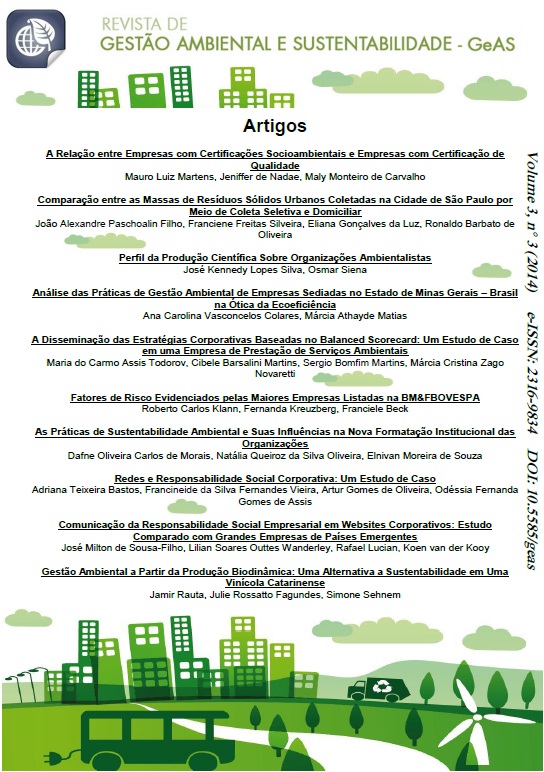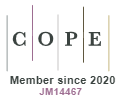COMPARISON BETWEEN THE MASSES OF URBAN SOLID WASTE COLLECTED IN SÃO PAULO CITY BY MEANS OF SELECTIVE AND HOUSEHOLD COLLECTION
DOI:
https://doi.org/10.5585/geas.v3i3.208Keywords:
Resíduos Sólidos Urbanos, Sustentabilidade, Reciclagem.Abstract
The problem of urban solid waste requires effective action to mitigate its environmental impacts. Thus, actions must be implemented to promote sustainability practices for the management of waste, involving participation of the public power, the private power and the population, as already highlighted in the National Solid Waste Policy (PNRS), published in 2010. Among these actions, we can mention selective collection and recycling. These, when properly integrated, yield benefits, such as reduced volumes destined for landfills, less irregular deposition areas, valuation and rehabilitation of waste in the supply chain, less need for use of natural resources etc. However, despite the importance of the adoption of these actions, some municipalities do not have effective policies regarding selective collection and recycling, even after the publication of the National Solid Waste Policy. This paper presents the monthly monitoring conducted in 2013 of the masses of municipal solid waste sent to sorting stations located in the city of São Paulo, so as to compare the amounts arising from conventional home collection and those from selective collection. The results show a great disparity within the measured masses, where the mass from selective collection correspond to only 1.9% of the total collected mass, i. e, a small amount compared to the amount collected. Please note that selective collection is of great importance to the implementation of effective recycling actions, providing economic, social and environmental gains.Downloads
Download data is not yet available.
Downloads
Published
2014-12-01
How to Cite
Paschoalin Filho, J. A., Silveira, F. F., da Luz, E. G., & Oliveira, R. B. de. (2014). COMPARISON BETWEEN THE MASSES OF URBAN SOLID WASTE COLLECTED IN SÃO PAULO CITY BY MEANS OF SELECTIVE AND HOUSEHOLD COLLECTION. Revista De Gestão Ambiental E Sustentabilidade, 3(3), 19–33. https://doi.org/10.5585/geas.v3i3.208
Issue
Section
Artigos










